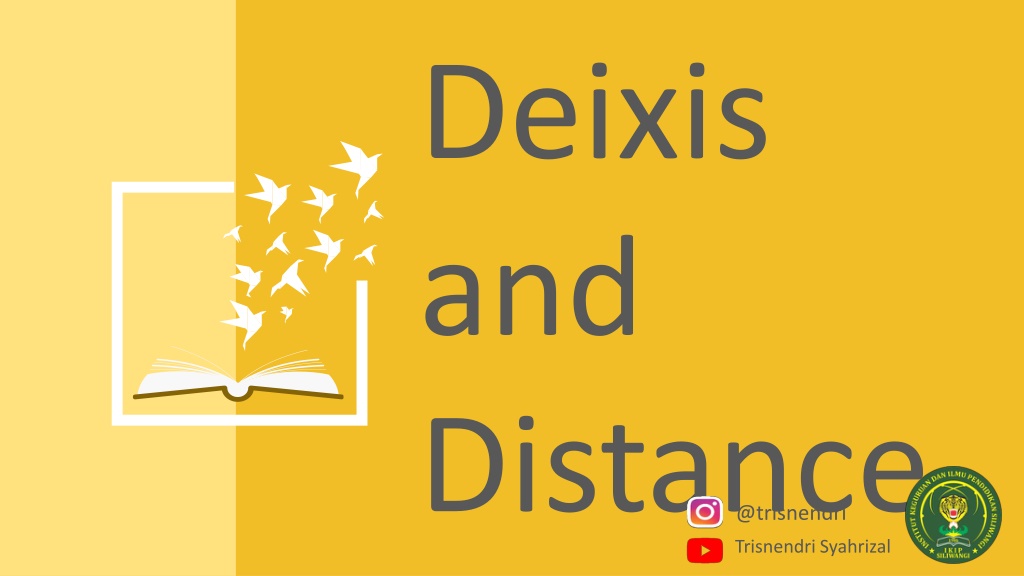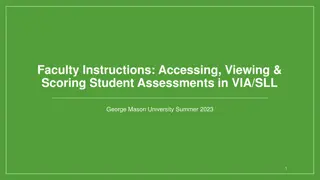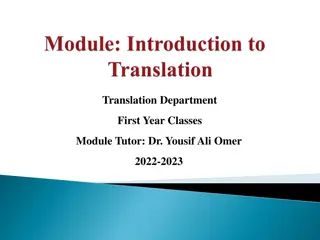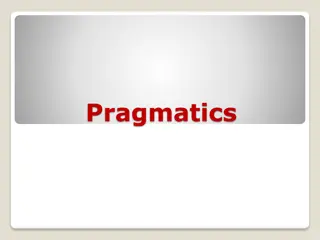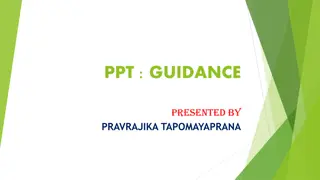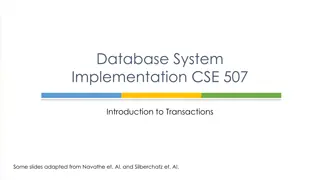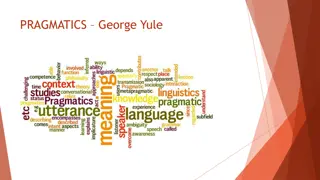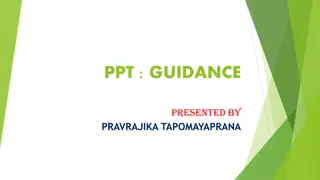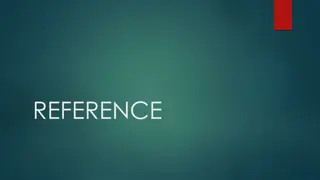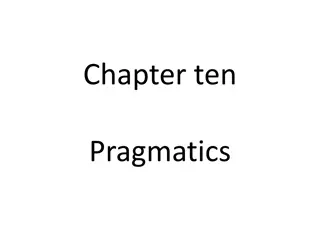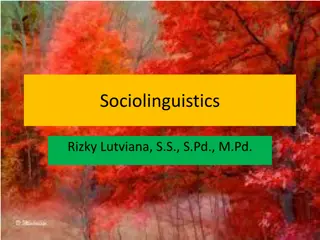Deixis: Pointing via Language
Deixis is a fundamental aspect of language that involves pointing via linguistic expressions to locate subjects in various contexts such as spatial, temporal, social, and discoursal situations. It is a crucial element that reflects the relationship between language and context. Through deictic expressions and indexicals, individuals can indicate specific places, times, and persons in communication.
Download Presentation

Please find below an Image/Link to download the presentation.
The content on the website is provided AS IS for your information and personal use only. It may not be sold, licensed, or shared on other websites without obtaining consent from the author. Download presentation by click this link. If you encounter any issues during the download, it is possible that the publisher has removed the file from their server.
E N D
Presentation Transcript
Deixis and Distance @trisnendri Trisnendri Syahrizal
Definition Definition @trisnendri Trisnendri Syahrizal
The word deixis is a technical term (from Greek) for one of the most basic things we do with utterances, which means pointing via language. @trisnendri Trisnendri Syahrizal
Deixis is the most obvious linguistic sign in which the relationship between language and context is reflected in the structures of languages themselves @trisnendri Trisnendri Syahrizal
The term deixis (derived from the Greek word meaning pointing or indicating) deals with the use of certain linguistic expressions to locate subjects in spatio- temporal, social and discoursal context (see Marmaridou, 2000: 65) @trisnendri Trisnendri Syahrizal
NOTE: NOTE: @trisnendri Trisnendri Syahrizal
Deixi s Via Indicating language Place Time Pointing Social Person
PRACTICE PRACTICE @trisnendri Trisnendri Syahrizal
https://bit.ly/pragmaticpracticeday3 @trisnendri Trisnendri Syahrizal
Deictic Expression/Indexic als @trisnendri Trisnendri Syahrizal
Any linguistic form used to accomplish pointing @trisnendri Trisnendri Syahrizal
Deictic expression/ Indexical here, there, this, that, now and then, as well as most pronouns, such as I, we, you, he, her and them. @trisnendri Trisnendri Syahrizal
Type of Deixis Type of Deixis @trisnendri Trisnendri Syahrizal
Person Spatial To Indicate People To Indicate Location Temporal Social To Indicate Time To Indicate social status and or condition @trisnendri Trisnendri Syahrizal
Person To Indicate People The speaker s reference to himself I/me we/us (1st Person) The speaker s reference to the addressee(s) You (singular) you (plural) ((2nd Person) The speaker s reference to other persons and entities,(neither speaker nor addressee) he/him she/her it they/them (3rd Person)
Guess How many Deixis Read the up coming Paragraph Guess how many deixis are in the Paragraph Write your answer in the Comment box as instructed @trisnendri Trisnendri Syahrizal
#1 Hello, everybody! everybody. Have a seat. Have a seat. Well, hello, London. It is good to be back in the UK. Thank you, Khadija, for that wonderful introduction. I was saying backstage I'd vote for her for something. Thank you so much. Thank you, @trisnendri Trisnendri Syahrizal
#2 I also just came from touring Shakespeare s Globe -- which is a good way to start your Saturday morning. Today is the 400th anniversary of Shakespeare s death. And as he once wrote, brevity is the soul of wit, so I will try to be brief on the front end so we have time for a conversation. @trisnendri Trisnendri Syahrizal
#3 And we see new calls for isolationism or xenophobia. We see those who would call for rolling back the rights of people; people hunkering down in their own point of view and unwilling to engage in a democratic debate. And those impulses understand. They are reactions to changing times and uncertainty.. I think we can @trisnendri Trisnendri Syahrizal
Spatial To Indicate Location Identifying Entities this/ these , that/those Informing about Locations Here/ there , above/below Acknowledging locations Come/go
Spatial To Indicate Location Spatial Deictic System PROXIMAL TERMS Near speaker ( this, here, now) DISTAL TERMS Away from speaker (that, there, then)
Spatial To Indicate Location Deictic projection Speakers being able to project themselves into other locations, time or shift person reference.
Spatial To Indicate Location Psychological Distance Physically close objects will tend to be treated by the speaker as psychologically close. Physically distant objects will tend to be treated by the speaker as psychologically distant. E.g. the man over there Mark something that physically close as psychologically distant E.g. I don t like that (after sniffing a perfume)
Temporal To Indicate Time Deixis Deictic Expressions Tomorrow Tense Now ( Lives) Proximal Soon Next week Have/has Then Yesterday (Lived) Distal Recently Last week Had @trisnendri Trisnendri Syahrizal
Social To Indicate social status and or condition Forms used to indicate relative social status. In many languages deictic categories become markers of relative social status.
Social To Indicate social status and or condition Sir, Your Majesty You Highness Bro Sist Or other names
Social To Indicate social status and or condition HONORIFICS Forms used to indicate relative social status. In many languages deictic categories become markers of relative social status.
Deixis and Deixis and Grammar Grammar @trisnendri Trisnendri Syahrizal
http://bit.ly/deixis1 @trisnendri Trisnendri Syahrizal
A shift happens in deixis from proximal to distal form, when the sentence transform from direct to indirect (or reported) speech Are you planning to here this evening? (direct) I asked her if she was planning to be there that evening. (indirect) @trisnendri Trisnendri Syahrizal
I am dancing. I danced @trisnendri Trisnendri Syahrizal
http://bit.ly/latihanweek3 This is your first weekly companion, enjoy your break time while reading the speech from the one and only the amazing Emma Watson. You have a FULL WEEK (7 Days) to read it REMEMBER READ THE DIRECTION AND YOU WON T BE LOST ENJOOOY!!! @trisnendri Trisnendri Syahrizal
Exit Ticket Exit Ticket @trisnendri Trisnendri Syahrizal
http://bit.ly/pragmaticsday3 @trisnendri Trisnendri Syahrizal
